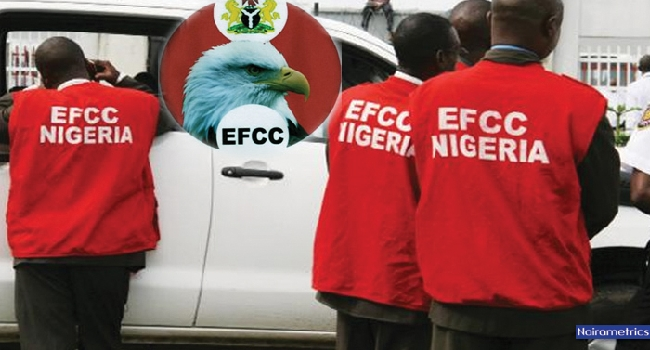The Economic and Financial Crimes Commission (EFCC) has flagged illegal mining and crime-related activities as serious menaces to the local and national economy. It noted that the non-payment of royalties, taxes, and other financial obligations not only deprives the country of much-needed revenue but also hampers economic progress and stability.
Mr. Abdulkarim Chukkol, represented by Mr. Micheal Nzekwe, drew emphasis to the importance of combating illegal mining and criminal activities at a Day Workshop organized by the EFCC for journalists in Kwara.
The workshop, titled ‘Effective Reporting of Economic and Financial Crimes’, was held at the Ilorin Zonal Command on Thursday.
Noting the alarming trend, the chairman acknowledged that cybercrime is a major concern, particularly among undergraduates and fresh graduates of tertiary institutions.
‘The commission has been active in tackling their criminalities and will continue to ensure that extant laws against illegal miners are enforced.’
‘Our work is engaging because the commission has been combating the menace of corrupt practices, going by its impressive records of convictions, asset forfeitures and other tangible proofs of accomplishments over the years.’
‘The reporting has also been arduous because our work is not static and media have always been keeping pace with our speed and energy.’
Read also: Siemens Scandal: Arrest Big Men Too – CACOL Urges EFCC
‘It is in recognition of these tasks that the commission initiated a workshop on economic and financial crime reporting for journalists.’
‘The workshop is one of the modest efforts of the commission to build synergy and foster a more engaging relationship with the media,’ he added.
The EFCC boss called on Nigerians to take a proactive stance against corrupt practices, stressing that waiting for personal or financial loss due to economic and financial crimes is unnecessary. He noted that corruption poses a serious threat to both individual and corporate development.
‘It is not only by being a victim of these crimes that we suffer losses, we also suffer limitations when our neighbours, colleagues, institutions and nation fall prey to them.’
‘I charge the nation journalists on patriotism, as you owe our nation and the entire world an obligation of exposing every shadiness and criminal acts through reporting.’
‘Journalism is the best gateway to whistle blowing and I charge the media to deploy more time, energy and commitment in exposing all fraudulent activities in our midst,’ he stated.
Alex Ocheme of the EFCC, in a presentation titled ‘New trends in cybercrime: How not to become a victim’ shed light on the fact that cybercrime has devoured more than $8 trillion of individuals’ hard-earned finances worldwide.
However, he made reference to the anti-corruption war encountering difficulties in conducting cross-border corruption investigations due to legal bottlenecks, which impede progress.
Ocheme observed that the absence of comprehensive cybercrime laws in some African countries presents a significant hurdle. This creates a situation where it is difficult to enforce the prosecution of corruption offenders, ultimately resulting in the loss of the stolen funds.
‘Each nation is entitled to its laws. They are not necessarily there to work with you.’
‘Some countries are fast to assist you in the war against cybercrime while some are not.’
‘For instance, if the UAE is not ready to collaborate with a country on a cybercrime investigation, it means the money lost is gone,’ he stated.
The workshop drew journalists from a range of media sectors, including print media, television and radio stations, and online publishers based in Ilorin.
